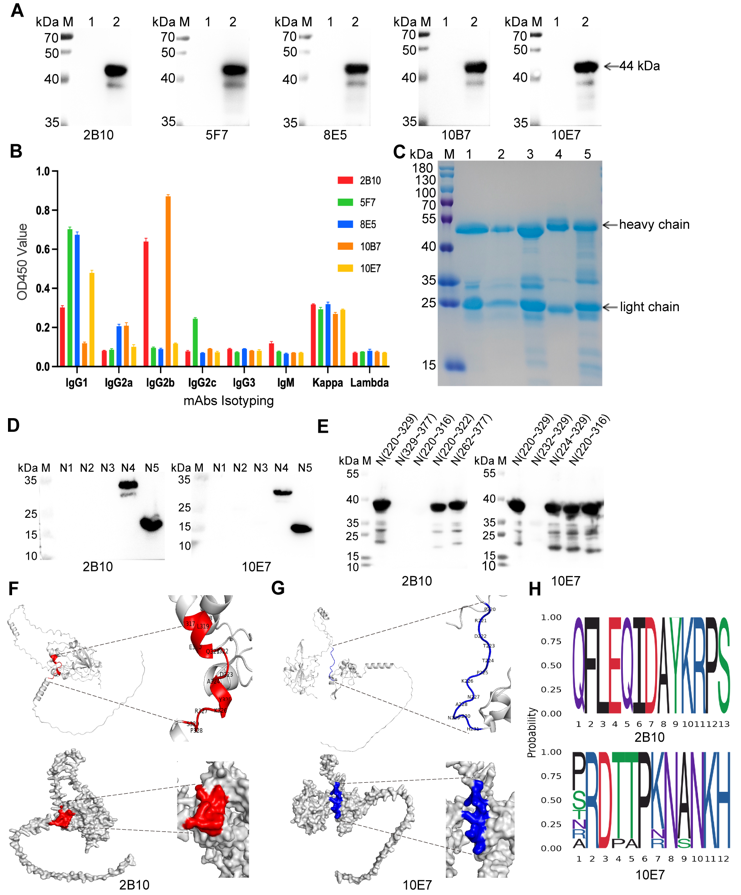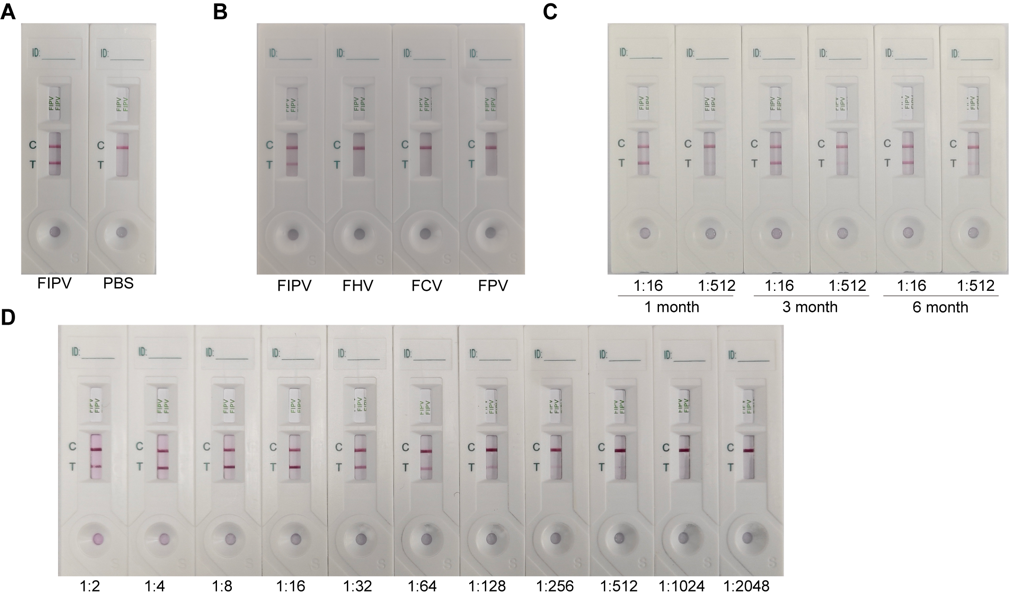
Recently, the Companion Animal Biosafety Risk Warning and Control Technology Team of SHVRI CAAS, successfully developed an immunochromatographic strip (ICS) for the detection of feline infectious peritonitis virus (FIPV) based on a panel of monoclonal antibodies specifically targeting FIPV. The ICS enables rapid pathogen detection with high specificity and sensitivity. When evaluated with clinical samples, the test showed a high concordance rate with RT-PCR results, offering a convenient and efficient tool for the clinical diagnosis of feline coronavirus infection. The related findings have been published in the International Journal of Biological Macromolecules.
Background
Feline infectious peritonitis (FIP) is a highly fatal immune-mediated disease caused by FIPV. Due to the high genetic variability of clinical FIPV strains and the potential risk of antibody-dependent enhancement (ADE) following vaccination, no effective vaccine is currently available. Thus, early diagnosis of FIPV infection is crucial for disease control and treatment. Although feline enteric coronavirus (FECV) is a major confounding factor in FIP diagnosis, and no ideal method currently exists to distinguish FIPV from FECV, clinical FIP cases often present with exudative ascites and pleural effusion. Therefore, detecting FIPV antigens in these fluids can still provide reliable evidence for diagnosis. Developing a rapid and simple diagnostic method to replace conventional RT-PCR assays remains of practical value.
Research Progress
Herein, we report the generation and validation of several high-affinity monoclonal antibodies targeting the FIPV N protein, which were subsequently employed in the construction of an immunochromatographic strip (ICS). Through optimization of colloidal gold labeling and antibody purification procedures, a robust ICS was developed with high specificity (no cross-reactivity), excellent sensitivity (limit of detection: TCID₅₀ = 103.8/mL), and good stability (shelf life of at least six months). In clinical sample testing, the ICS showed a high concordance rate with RT-PCR, while offering significant advantages in speed (results within 15 minutes), simplicity, and cost-effectiveness. This method effectively addresses the limitations of conventional RT-PCR in terms of timeliness and accessibility, and provides a valuable tool for the early diagnosis and control of FIP.

Generation and characterization of monoclonal antibodies against FIPV

Assessment of the sensitivity, specificity, and stability of the FIPV immunochromatographic strip
Funding
This work was supported by the Natural Science Foundation of Shanghai (22ZR1476300), the Shanghai Municipal Science and Technology Major Project (ZD2021CY001), the China Postdoctoral Science Foundation (2024M753586), and the National Natural Science Foundation of China (32000109, 31672572). Professor Guangqing LIU is the corresponding author of the paper, and Miao ZHANG, a Ph.D. student at the SHVRI CAAS, is the first author.
Link to Original Article

